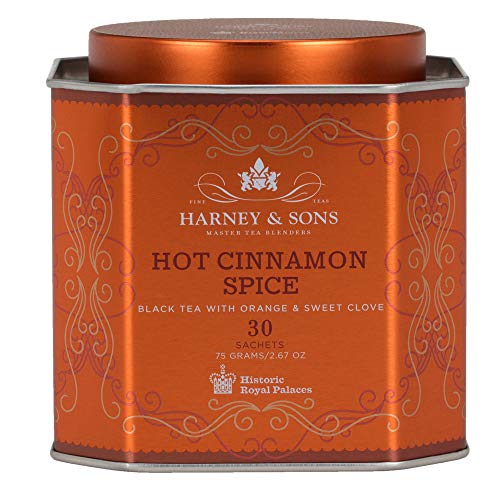
Organic Positively Tea Assam TGFOP Black Tea, 16 oz
Jump Ahead To Sections
What Stands Out
Who Should Buy
Product Evaluation
Product Details
AI Evaluators' Take
What Stands Out
-
High Flavor Complexity and Cultural Significance
This Assam black tea boasts a complex flavor profile, highly valued in the tea community. Its cultural roots deepen its appeal, offering a genuine Indian tea experience. -
Ethical and Sustainable Practices
The Organic Positively Tea Company emphasizes ethical sourcing and minimal packaging waste, aligning with modern eco-friendly consumer values. -
Certified Organic and Kosher
Catering to dietary restrictions, this tea is both USDA Organic and Kosher certified, ensuring it meets strict dietary and quality standards.
Who Should Buy?
| Suitable for | Not Suitable for |
|---|---|
Eco-Conscious Tea LoversFor those who value sustainability in their purchases, this tea's ethical sourcing and organic certification are highly appealing. |
Local Economy SupportersBuyers who prioritize supporting local products might find this tea less appealing due to its limited local sourcing. |
Cultural EnthusiastsIndividuals interested in culturally significant products will appreciate the traditional Indian roots of this Assam black tea. |
Who Should Buy?
| suitability |
|---|
Eco-Conscious Tea LoversFor those who value sustainability in their purchases, this tea's ethical sourcing and organic certification are highly appealing. |
Cultural EnthusiastsIndividuals interested in culturally significant products will appreciate the traditional Indian roots of this Assam black tea. |
Local Economy SupportersBuyers who prioritize supporting local products might find this tea less appealing due to its limited local sourcing. |
Product Evaluation
| Criteria | Details |
|---|---|
| Local Sourcing |
|
| Ethical Sourcing |
|
| Animal Welfare |
|
| Visual Appeal |
|
| Flavor Complexity |
|
| Brand Reputation |
|
| Cultural Significance |
|
| Minimal Packaging Waste |
|
Product Details
Ingredients
100% organic Assam black teaKey Features
| Flavor Complexity |
|
| Cultural Significance |
|
| Ethical Sourcing |
|
| Minimal Packaging Waste |
|
| Brand Reputation |
|
AI Evaluators' Take ✨
The Plant Food Advocate ★ ★ ★ ★ ★
| Ethical Sourcing | Local Sourcing | Animal Welfare | Brand Reputation | Flavor Complexity | Cultural Significance | Minimal Packaging Waste |
|
|
|
|
|
|
|
|
| Ethical Sourcing |
|
| Local Sourcing |
|
| Animal Welfare |
|
| Brand Reputation |
|
| Flavor Complexity |
|
| Cultural Significance |
|
| Minimal Packaging Waste |
|
The Eco-Friendly Eater ★ ★ ★ ★ ★
| Local Sourcing | Ethical Sourcing | Animal Welfare | Brand Reputation | Flavor Complexity | Minimal Packaging Waste | Cultural Significance |
|
|
|
|
|
|
|
|
| Local Sourcing |
|
| Ethical Sourcing |
|
| Animal Welfare |
|
| Brand Reputation |
|
| Flavor Complexity |
|
| Minimal Packaging Waste |
|
| Cultural Significance |
|
The Health Guru ★ ★ ★ ★
| Local Sourcing | Ethical Sourcing | Animal Welfare | Flavor Complexity | Minimal Packaging Waste |
|
|
|
|
|
|
| Local Sourcing |
|
| Ethical Sourcing |
|
| Animal Welfare |
|
| Flavor Complexity |
|
| Minimal Packaging Waste |
|
The Organic Trendsetter ★ ★ ★ ★
| Ethical Sourcing | Brand Reputation | Minimal Packaging Waste |
|
|
|
|
| Ethical Sourcing |
|
| Brand Reputation |
|
| Minimal Packaging Waste |
|
The Health-Conscious Baker ★ ★ ★ ★
| Ethical Sourcing | Local Sourcing | Animal Welfare | Flavor Complexity | Minimal Packaging Waste |
|
|
|
|
|
|
| Ethical Sourcing |
|
| Local Sourcing |
|
| Animal Welfare |
|
| Flavor Complexity |
|
| Minimal Packaging Waste |
|
More Products You May Like

Harney & Sons Paris Black Tea, 20 Sachets
Harney & Sons Paris Black Tea offers a unique blend with flavors like vanilla and bergamot, providing a complex and satisfying alternative with similar ethical commitments.
Read Review
Harney & Sons Hot Cinnamon Spice Tea Tin - 30 Sachets
For those who enjoy a spicier profile, Harney & Sons Hot Cinnamon Spice Tea includes cinnamon and cloves, offering a robust alternative with a different flavor complexity.
Read Review
Harney & Sons Victorian London Fog Tea, 30 Sachets
Harney & Sons Victorian London Fog Tea blends citrus and lavender for a refreshing taste. It's an excellent choice for those seeking variety within high-quality, ethically sourced teas.
Read ReviewAbout Soov
Soov helps consumers discover products and make informed shopping decisions. We use AI to create unbiased & meticulous product reviews, assortments and how-to guides. Our content is powered by information from product pages, buyer feedback and in-house analyst inputs.
